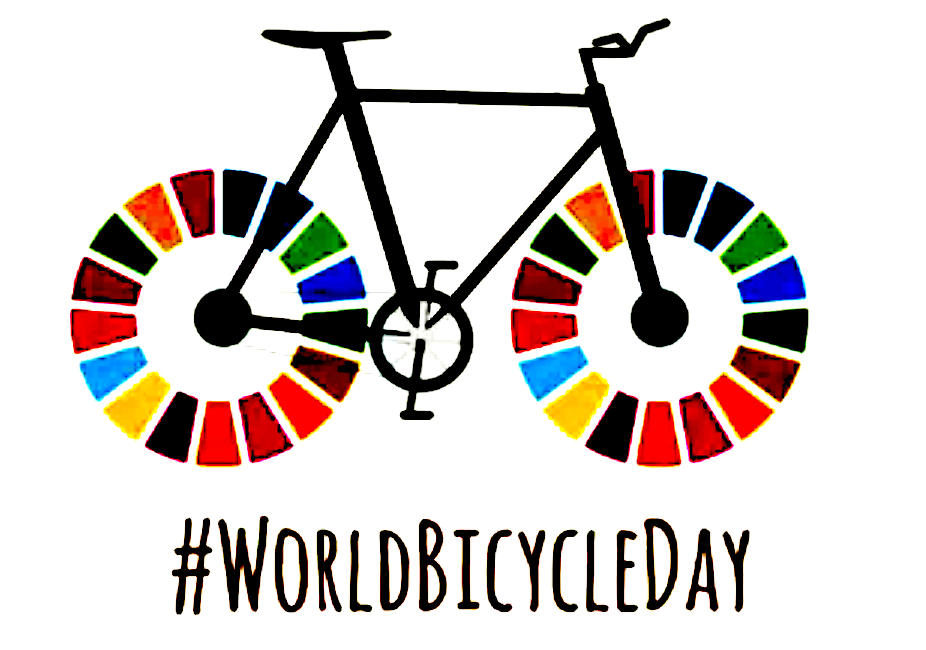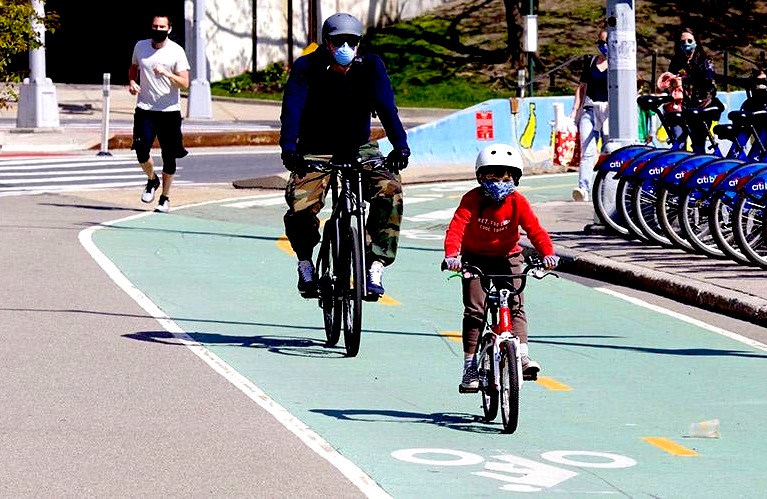World Bicycle Day is celebrated in over 80 countries around the world to promote the use of bicycles for transportation, recreation and environmental conservation. Formally adopted by the United Nations in 2018, World Bicycle Day celebrates the critical role bicycles play in fostering sustainable development around the world.

June 3, 2022 - According to the World Health Organization (WHO), safe infrastructure for walking and cycling is a pathway for achieving greater health equity, and providing bicycles to the world’s poorest individuals and communities can prevent 1.5 million premature deaths and 5 billion pounds of greenhouse gas emissions each year.
The European Cyclists’ Federation states that because transport – especially the over-reliance on motorised vehicles – makes up a significant share of our dependence on fossil fuels, governments and individuals across the globe are now increasingly looking to cycling as a solution. This is why World Bicycle Day 2022 feels even more momentous than previous years.
World Bicycle Relief shares the vision in the UN’s 2018 resolution, “the bicycle can serve as a tool for development and as a means not just of transportation but also of access to education and healthcare. The potential of the bicycle to contribute to the achievement of the internationally agreed development goals, including the Sustainable Development Goals and targets of the 2030 Agenda.”
In addition, for more than 100 years, bicycles have helped advance women’s rights by increasing their access to education, health care & sport.

Regular physical activity of moderate intensity – such as walking, cycling, or doing sports – has significant benefits for health. At all ages, the benefits of being physically active outweigh potential harm, for example through accidents. Some physical activity is better than none. By becoming more active throughout the day in relatively simple ways, people can quite easily achieve the recommended activity levels.
The mobility needs of people who walk and cycle – often the majority of citizens in a city – continue to be overlooked, states Share the Road Programme Annual Report 2018, even though the benefits of investing in pedestrians and cyclists can save lives, help protect the environment and support poverty reduction. Meeting the needs of people who walk and cycle continues to be a critical part of the mobility solution for helping cities de-couple population growth from increased emissions, and to improve air quality and road safety.
For the poorest urban sector, who often cannot afford private vehicles, walking and cycling can provide a form of transport while reducing the risk of heart disease, stroke, certain cancers, diabetes, and even death. Accordingly, improved active transport is not only healthy; it is also equitable and cost-effective.
• The bicycle is a simple, affordable, reliable, clean and environmentally fit sustainable means of transportation;
• The bicycle can serve as a tool for development and as a means not just of transportation but also of access to education, health care and sport;
• The synergy between the bicycle and the user fosters creativity and social engagement and gives the user an immediate awareness of the local environment;
• The bicycle is a symbol of sustainable transportation and conveys a positive message to foster sustainable consumption and production, and has a positive impact on climate.

Background
Acknowledging the uniqueness, longevity and versatility of the bicycle, which has been in use for two centuries, and that it is a simple, affordable, reliable, clean and environmentally fit sustainable means of transportation, fostering environmental stewardship and health, the General Assembly decided to declare 3 June World Bicycle Day.
It encouraged stakeholders to emphasize and advance the use of the bicycle as a means of fostering sustainable development, strengthening education, including physical education, for children and young people, promoting health, preventing disease, promoting tolerance, mutual understanding and respect and facilitating social inclusion and a culture of peace.
The Assembly welcomed initiatives to organize bicycle rides at the national and local levels as a means of strengthening physical and mental health and well-being and developing a culture of cycling in society.
World Bicycle Day:
Encourages Member States to devote particular attention to the bicycle in cross-cutting development strategies and to include the bicycle in international, regional, national and subnational development policies and programmes;
Encourages Member States to improve road safety and integrate it into sustainable mobility and transport infrastructure planning and design, in particular through policies and measures to actively protect and promote pedestrian safety and cycling mobility, with a view to broader health outcomes, particularly the prevention of injuries and non-communicable diseases;
Encourages stakeholders to emphasize and advance the use of the bicycle as a means of fostering sustainable development, strengthening education, including physical education, for children and young people, promoting health, preventing disease, promoting tolerance, mutual understanding and respect and facilitating social inclusion and a culture of peace;
Encourages Member States to adopt best practices and means to promote the bicycle among all members of society, and in this regard welcomes initiatives to organize bicycle rides at the national and local levels as a means of strengthening physical and mental health and well-being and developing a culture of cycling in society.
Read more here.
















